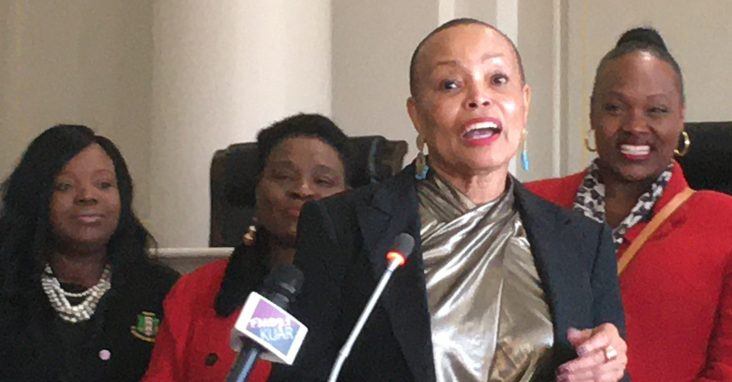Sen. Elliott says Second Congressional District has changed since her first run
by November 17, 2019 6:58 pm 965 views

State Sen. Joyce Elliott, D-Little Rock, is making a second run for the Second Congressional District seat, and she contends that the district is different than it was a decade ago.
Appearing on this week’s edition of Talk Business & Politics, Elliott, who is challenging incumbent U.S. Rep. French Hill, R-Little Rock, said she made her mind up to run the weekend before filing deadline.
“I had been hoping that somebody else would run because there are people out there that I thought were capable, but it became pretty clear toward the past weekend that that was not going to happen, and I feel confident I’m qualified for it,” she said.
The Second Congressional District includes Pulaski, Saline, Faulkner, Perry, Conway, Van Buren, and White counties.
Since her last run in 2010 when she lost by nearly 20 points to now Lt. Gov. Tim Griffin, R-Ark., Elliott has continued service in the Arkansas State Senate working on issues of education, prison reform, tax fairness and women’s rights. She said her work of the last 10 years has further prepared her for Congress and has helped equip her to work in a bipartisan fashion.
“I am comfortable if you ask Democrats or Republicans, they will tell you, I’ve always been a fair player, and an upright person, and so I feel very confident that I have the will and the skills to get out there and do the hard work of getting those votes,” she said. “I don’t think there’s anybody with whom I’ve ever dealt that would not tell you I’m not fair, and that’s why I often say to people, when I die, if on my tombstone it says, ‘she was fair, she treated people right,’ that would be good enough for me.”
Elliott said “the times have changed” since her first run for Congress.
“In 2010, you know, that was probably the toughest time for anybody to run as a Democrat, because people were in high anxiety. We were just coming into the middle of a very difficult recession, and we had just had Barack Obama elected to the presidency, and a lot of people were kind of bothered by that. We were working at trying to make sure, we were making big changes in Washington, like, for example, talking about the ACA [Affordable Care Act], which many people, you know, from that time, what, over 300,000 people or so in Arkansas have, have really benefited from,” Elliott added.
“I think this is a time, too, when then country has just opened more to, especially to, electing more women, and I think this time, I have a chance for people to know more about who I am, because there are just so many more ways out there to be known, and I haven’t spent my time just sitting idly by since 2010,” she said.
On the impeachment inquiry underway in Congress, Elliott said she is keeping an open mind on the issue.
“I have not seen enough to say that because, you know, originally I started with hoping people know I was fair, and for me, that even extends to the President,” she said. “I think Congress is doing the right thing and making sure they are thoughtful and careful and examine the information, listen to what the witnesses have to say, and make a decision based on the facts.”
Elliott has more conclusive opinions on the state Board of Education’s and the governor’s decisions on the Little Rock School District.
“Here’s a problem with what they’re saying: For the last five years, they have taken over Little Rock. We’ve had taxation without representation, per the State Board of Education and Johnny Key, right? When they started, there was no need to take over the entire district. There were six out of 48 schools that had been labeled as ‘failing’ schools. Now, there are eight. Now, after five years, there are more schools that are considered ‘failing’ schools than there were when we started out,” Elliott said.
When asked about the governor’s proposal to engage the Martin Luther King, Jr. Commission into the discord that has emerged between different entities in the school district dispute, Elliott said it was an unlikely player to resolve issues.
“I suppose there would be openness to it, but I don’t know what that would necessarily accomplish because I don’t think the function of the MLK committee, I don’t know if there are people on that commission with more expertise than anybody else when it comes to listening and communication. We have a communication problem mainly because the state board doesn’t listen to what people in Little Rock want,” she said.
You can watch Elliott’s full interview in the video below.
